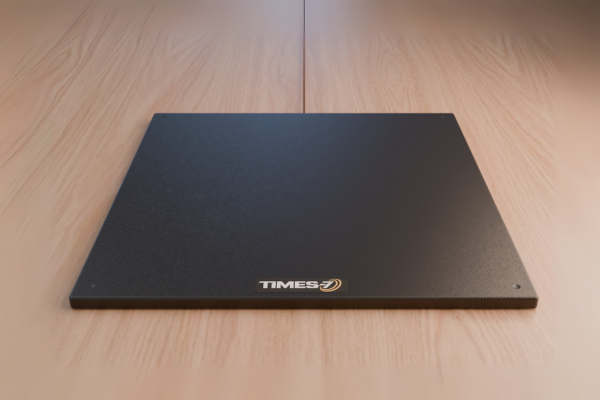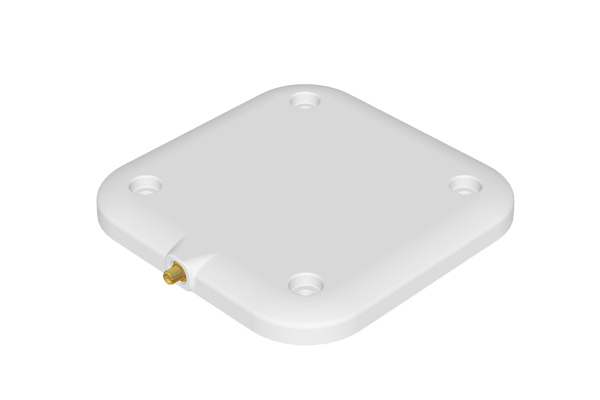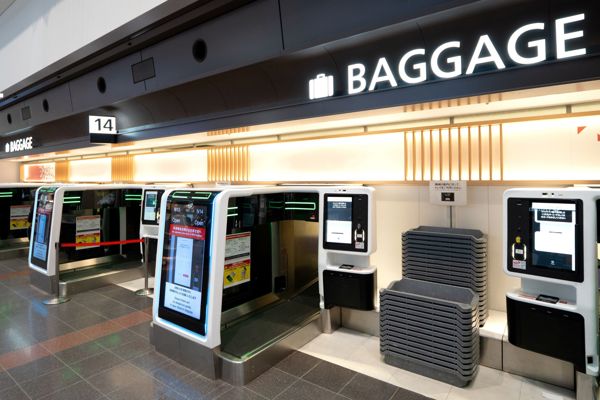How we are preparing for the EU's Digital Product Passport

As Europe prepares to implement the Digital Product Passport (DPP), we are taking proactive steps to ensure transparency, compliance, and sustainability across its operations. From material traceability to responsible sourcing, we are aligning our manufacturing practices with evolving global standards to support a more sustainable future for the RFID industry.
Overhead configuration testing: Comparing A5060 and A5010 for patient and staff tracking in healthcare environments.

Fixed RAIN RFID tracking enables a broad range of applications within hospital environments. In this blog, we evaluated the performance of the A5060 and A5010 antennas in overhead configurations designed for tracking patient and staff movement. While this specific configuration testing set up is for people tracking, it can also be used to track assets.
Custom vs. Standard Antennas: How to choose the right antenna for your application.

When deploying a RAIN RFID solution, selecting the appropriate antenna plays a critical role in system performance. While standard antennas offer versatility and quick deployment, certain applications demand tailored solutions.
A5060 Antenna in Retail: A look at one of its many use cases.

This blog takes a closer look at the A5060 antenna, and how its compatibility and precise read performance can solve common challenges in both front-of-house and back-of-house scenarios.
RFID: The Quiet Revolution Transforming Retail

Walking into a retail store today, you might not notice it, but beneath the shelves, behind the displays, and in the storerooms, RFID is enabling tracking. It's not just about counting boxes faster. RFID is now driving how retailers understand customer behaviour, how sales associates are empowered, and how products find their way from warehouse to storefront with pinpoint precision. This signals a wave of opportunity.
Choosing the right antenna for railway asset tracking

Railway environments amplify these challenges. The presence of metal infrastructure, exposure to weather, and the constant movement of rolling stock make precise read point design essential—and choosing the right antenna becomes pivotal to ensuring consistent, reliable tag reads. In this blog, we’ll explore the key factors to consider when selecting an antenna for railway applications and highlight a high-performance option that is suitable for this application.
Why the A5010 is an exceptional antenna - 5 Significant benefits of the A5010

The A5010 has a unique combination of benefits, which makes it the best RAIN RFID antenna of its kind. This blog will look at 5 significant benefits of this antenna and how its design enhances customers' experience by simplifying operations and enabling RFID tag reading in challenging situations where other antennas would fail.
Technical Specifications and Installations tips for shelving antenna: A spotlight on A7030C

The main purpose of this blog is to provide a comprehensive guide on the technical specifications and installation tips for the SlimLine A7030C shelving antenna. This includes highlighting its benefits, installation methods, and addressing common questions about its application. The blog aims to educate and inform potential users, particularly those wanting to implement smart shelving solutions using this specific antenna.
Handheld vs. Fixed RFID Readers: Which is right for your application?

Choosing the right RFID reader can make or break the efficiency of your system. Whether you’re tracking assets in retail, logistics, healthcare, or another sector, selecting between fixed and handheld RFID readers depends on your specific needs and environment. In this blog, we will break down the key differences and considerations to help you make the best choice for your application.
Introducing the Times-7 Packing Station Antenna

The Packing Station Antenna is engineered for reliable item-level reads in densely packed product environments. Outperforming conventional multi-patch arrays in standard portal setups, it uses a high-gain, multi-patch design with varied orientations to deliver 100% read rates. Whether deployed as a standalone tabletop unit or integrated into a tunnel, the Packing Station Antenna enables efficient and adaptable workflows, allowing it to read over a thousand tags in seconds.
Medical Tool and Pharmaceutical Tracking using Near-Field Technology

Near-field RAIN RFID enables precise, item-level tracking of medical tools and pharmaceuticals in demanding healthcare environments. Learn how controlled read zones improve visibility, reduce waste, and support safer, more efficient clinical workflows.
True NearField Antennas

These are antennas designed explicitly for near-field only provide a close to the surface consistent read zone with no dead spots using the magnetic components of the RF electromagnetic fields. Although reading tags at a greater distance is one of the advantages of RAIN RFID, some applications require near-only zone tag detection. In these cases, a consistent surface read zone with no dead spots is essential. A true near-field antenna will have almost no distance read capability.
Near-Field reader antenna FAQ's

Near-field reader antennas are an integral part of RFID technology, offering precision and reliability in various applications. At Times-7, we frequently encounter questions about the capabilities and use of these antennas. We have compiled a list of FAQs to provide you with an overview of our near-field antennas.
RAIN RFID in Healthcare and What Antenna to Use

Discover how RAIN RFID technology is revolutionizing healthcare by enhancing patient safety, streamlining asset tracking, and improving operational efficiency. Explore real-world case studies showcasing Times-7's innovative antenna solutions in action.
High-performing RAIN-enabled checkout bin: Choose the Right Antenna

Discover how to build a high-performing RAIN RFID-enabled checkout bin by selecting the right antenna for your needs. Whether you're managing high tag volumes with diverse materials or seeking a cost-effective solution for simpler setups, this guide explores two proven configurations—premium and basic—designed to optimize read accuracy and minimize stray reads. Make informed decisions for seamless, efficient RFID-enabled checkout.
Maximizing RAIN RFID Portal Efficiency: The Ideal Antenna Configuration

RAIN RFID portals play a crucial role in numerous industries by facilitating the efficient tracking and management of assets and personnel. With this antenna configuration guide, you can confidently build a high performing RFID portal with 100% read accuracy.
At Times-7, Sustainability is a Journey: Embracing a Greener Future with Melissa Lieser

At Times-7, sustainability is not just a goal; it's a journey that we are committed to pursuing. As we continue to innovate in the RAIN RFID industry, we remain dedicated to integrating sustainable practices into our business. To assist us with this initiative, we are proud to have Melissa Lieser on board.
What is the difference between our A5020 CP vs. A5020 MR antenna?

Our A5020 antenna family offers a versatile range of antennas: the A5020 Circular Polarised (CP), A5020 Near Field (NF), A5020 Mid-Range (MR), A5020 Linear Extreme (LX) and the A5020Circular Polarised Extreme (CX). This blog post explains the differences between our A5020 CP and A5020 MR antennas. After you've read it, you'll know which one to choose for your application.
Partner Spotlight Series: Aware Innovations

Times-7 collaborates closely with key partners to deliver effective and innovative RFID solutions. Our Partner Spotlight Blog Series recognizes outstanding partners, highlights their accomplishments, and discovers what inspires them. Each partner, ranging from distributors to system integrators, has a unique story to tell.
How we got our name: The Story Behind Times-7

Did you know that our company name is inspired by the incredible speed at which radio waves emitted by our antennas can travel? In just one second, they can circumnavigate the globe seven times...giving us the name Times-7! Learn more about how Times-7 came about, where we are now, and where we are heading.
Partner Spotlight: Arcadian

In the world of RFID, the right partnerships can make all the difference. An example of a successful collaboration is the partnership between us and Arcadian Inc., a market-leading stocking distributor of RFID, wireless, radio, and networking products. Together, we have driven innovation in the US RFID antenna landscape.
Optimize your RFID antenna placement for maximum performance!

RFID technology relies on the efficient transmission and reception of radio signals between an RFID reader and an RFID tag. Optimizing antenna placement is critical to achieving maximum performance from your RFID system. Here are some critical considerations for optimizing antenna placement for maximum performance.
How to Interpret Reader Antenna Radiation patterns

At Times-7 we design world class RAIN RFID antennas. Being able to read radiation patterns of those antennas is paramount to set up RFID read points efficiently. Dr Prabakar Parthiban our Senior RF Engineer and Head of Engineering has published an IEEE poster to help system integrators and solution designers to interpret antenna radiation patterns in theory and in practice. This poster is a useful guide to acquire the knowledge to determine which antenna model suits your specific needs.
Showcasing the A5020LX and A5020MR

These antennas are part of the A5020 Series, a total of five A5020 models, all of which take advantage of Times-7's SlimLine™ design and performance characteristics.
RAIN RFID Near-Field Antenna: How to create a close proximity read zone

Creating a close-proximity read zone in RFID applications can bring numerous benefits, including improved accuracy, reduced interference, and enhanced data capture. RAIN RFID Near-field (NF) antennas can create well-defined read zones, minimizing stray reads. This blog will explain the significance of a close-proximity read zone and guide you through creating one.
Deer Industry New Zealand Implements an RFID-Enabled Industry-Wide Stock Management System

With help from technology designers, Times-7, Deer Industry New Zealand (DINZ) is to deploy UHF RFID across New Zealand to track deer velvet inventory movements. Velvet is a booming export market for New Zealand selling at (approx.) $120 NZD per kg. Tests have been completed and the system is giving excellent results. The UHF RFID implementation will be fully deployed in Spring 2021.
Why RAIN RFID struggles to read liquid assets

Liquid assets often pose significant challenges for RAIN RFID systems. In this blog, we’ll highlight how Times-7 antennas play a crucial role in overcoming these issues.
Using Multiple Antennas? Save costs with a Multiplexer

Multiplexers connect multiple antennas to a single reader port. This allows your customers to make more efficient use of expensive hardware to reduce the cost of their UHF RFID application. Do your customers require multiple antennas for their applications? Discover what a multiplexer does and how it can benefit your customers by reading on.
RAIN RFID is helping to create a sustainable future

RFID technology is having a massive effect on reducing waste in consumption and supply chains. We are pleased to see the RAIN RFID community's increasing focus on sustainability here in New Zealand and overseas. Let's see how RFID is increasing sustainability efforts across different industries.
RAIN Alliance Meeting: Key Findings 2023

Thank you to the RAIN Alliance for a fantastic event in Helsinki in June. Our Managing Director Jos Kunnen, RF Engineer Ryan McCracken and Business Development Manager George Mitchell were all in attendance. Here are some key learnings they took away from the event.
Partner Spotlight Series: Cisper – Europe's leading RFID distributor

As part of our new blog series, we recognize outstanding partners, highlight their accomplishments, and discover what inspires them. Since partnering with distributors, we've seen real growth in our business, and they have too. Each partner has a unique story to tell.
Circular Vs. Linear polarised antennas

When choosing a suitable RFID antenna for your application, the polarisation of your antenna is a key consideration, as polarisation can influence the performance of your RFID read zone. We have a wide range of circular and linear polarised antennas, but how do you know which is right for your application? We have broken down the key differences between each polarisation type on how they operate and some best use cases.
Partner Spotlight Series: Atlas RFID

We recognize our outstanding partners, highlight their accomplishments, and discover what inspires them as part of this new blog series. Since partnering with Atlas RFID, we've seen substantial growth in our business. Each partner of ours has a unique story to tell.
Unexpected but awesome uses of RFID

The possible applications of RFID are endless. RFID is scalable and inexpensive; adopters leverage the technology in surprising but awesome ways! Let’s take a closer look at some of the incredible applications that are using RFID.
Multiplexer vs Power Divider

Both Multiplexers and Power Dividers are helpful devices to expand the number of antennas that can be connected to one reader’s port. One of the main benefits is to reduce the cost of a UHF RFID application by sharing expensive hardware. In this blog post, we explain the differences and what needs to be considered when selecting the right device for your application.
IATA: Decisive Step Forward In Adopting RAIN RFID In 2020

In May the IATA (International Air Transport Association) held its AGM meeting in Sydney, Australia where it voted to develop a standard for using RFID to track luggage to reduce mishandling baggage rates and increase accuracy.
The A5060 Slimline High Gain Antenna

Discover why the A5060 SlimLine High Gain Antenna is redefining what's possible in RFID systems. With its ultra-low profile and market-leading 10 dBiC gain, the A5060 delivers superior read range and performance in space-constrained environments. Ideal for applications like portals, conveyor belts, and industrial settings, this antenna is built to perform without compromise.
RFID Continues to Move Toward Mass Adoption

A5020- Mounting won't interfere with RF performance

The A5020 is a sleek, high-performance RFID antenna designed with a compact footprint. Its versatile mounting options make deployment effortless, delivering both aesthetic appeal and reliable performance in any environment.